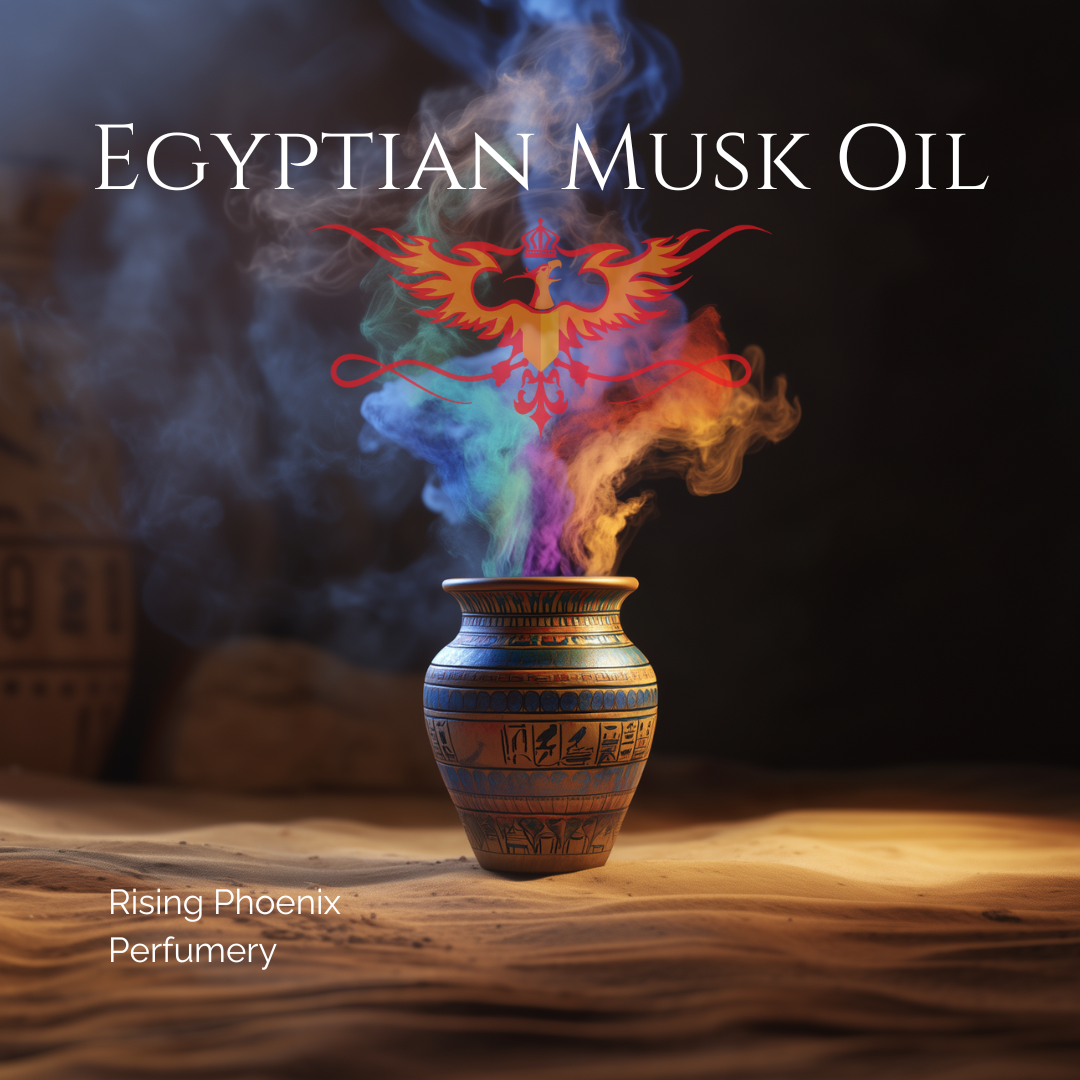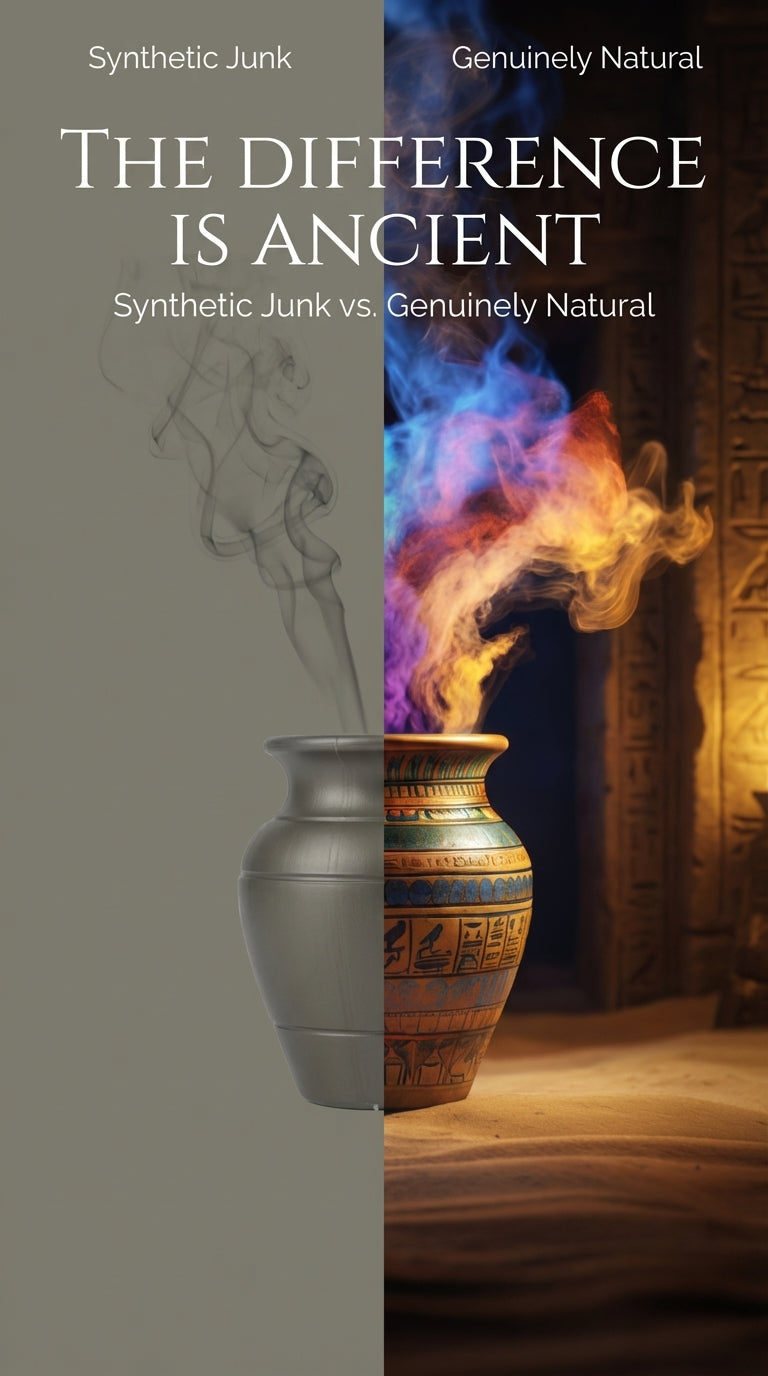Rising Phoenix Perfumery
Egyptian Musk Oil 2025
Egyptian Musk Oil 2025
Shipping & Returns Info.
Shipping & Returns Info.
Pertaining to all customers:
Our current lead time can range from 1 to 8 weeks.
Special requests can be made in the "notes" section on the checkout page.
All orders are final. There are no cancellations or returns.
Reach out the the RPP team as soon as possible if you need to make changes to your order.
International customers: The RPP team highly recommends shipping with a private courier for accurate tracking information and timeliness.
Couldn't load pickup availability
I get asked every so often about "Egyptian Musk Oil". No, the junk sold for a few bucks a bottle is in no way natural, nor does it likely smell like any of the oils of antiquity that Egypt was famous for. As far as I am aware, there are no known genuinely natural Egyptian Musk Oils out there.
Until now, that is...
I've done many studies on the ingredients and compounding techniques used in the Ancient Empires of Egypt and Rome and the surrounding kingdoms through the ages. So when I had a friend who sent me a sample of something he had made, it inspired me to make an oil - in part inspired by my friend's work, and also drawing upon the ancient techniques and ingredients of Egyptian Antiquity.
Behold - a truly natural Egyptian Musk - true to its ancient roots.
What is Egyptian Musk?
I visited a friend a year or two back who showed me an oil he had acquired out in the middle of nowhere, somewhere in the Horn of Africa. He told me it was a traditionally compounded "Musk Oil" - the musk in this instance being Nile Crocodile Toenails compounded into Sandalwood. Yuck, you might be thinking...but I was rather surprised at how intriguing the scent was. An odd combination, surely - but maybe not so odd if that's what can be found in your backyard. And it worked...so who am I to judge?
Deer Musk, of course, was a known and widely used material in the oil and incense industries of the past. When people hear the term "Musk" - it is usually material from the Musk Deer that people think. Contrary to that thought - there are many materials out there that are Musky - some of them vegetal, some of animal origin.
Civet is generally known as the "Musk of Africa", as the Ethiopian Civet is native to the region. Egyptian Musk oils of the past were likely based on Civet.
To make this Egyptian Musk - I relied on neither Deer Musk nor Civet Paste (nor Nile Crocodile Toenails, tempting as that was). Rather, I rely mostly on the nature of the materials local to the Mediterranean and the region around the Horn of Africa. All materials that were accessible to the ancient Egyptians and found in common use in their unguents and oils.
So what went into RP's Egyptian Musk??
You'll find the most expensive Frankincense on the planet from Oman, as well as vintage batches of Opoponax, Myrrh, and Labdanum from Crete.
Instead of Crocodile Toenails - I used Buoya, or Aetoxylon - known as "Crocodile Agarwood" from the Indonesian island of Borneo.
There is a generous amount of Cambodi Oud Smoke, as well as an unusual secretion from the South African Hyrax (from which I make my Hyraceum Attar from).
There is also a touch of Blue Lotus - revered plant that it was in Egyptian culture at the time.
There are various other resinous and woody materials used to accentuate the main players in the composition, and of course, Rising Phoenix's custom-distilled Mysore Sandalwood.
All together - RP's Egyptian Musk is Sultry Sweet, Resinous, Musky, Oud Smokey - and not unlike what I imagine a Pharaoh from the Dynasties of past glory might have smelled like.
Share










